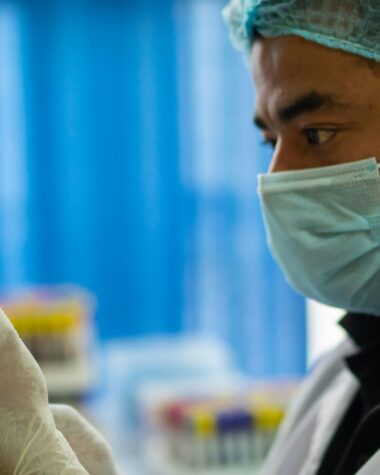Vanda Pharmaceuticals Inc. (NASDAQ:VNDA) is a biopharmaceutical company focused on the development and commercialization of innovative therapies that address unmet medical needs in neurology, psychiatry, and rare diseases. Founded in 2003 and headquartered in Washington, D.C., the company has built its reputation on its expertise in central nervous system disorders and circadian rhythm regulation. Vanda’s breakthrough came with the development of HETLIOZ (tasimelteon), the first FDA-approved treatment for Non-24-Hour Sleep-Wake Disorder, a rare condition that affects individuals who are completely blind. Following its approval, HETLIOZ was further expanded into additional indications such as nighttime sleep disturbances in Smith-Magenis Syndrome, solidifying Vanda’s leadership in sleep regulation and chronobiology.
Over the years, Vanda has established itself as a science-driven organization with a commitment to personalized medicine and targeted therapies. Its second key commercial product, Fanapt (iloperidone), is an atypical antipsychotic indicated for the treatment of schizophrenia in adults and has been approved in multiple global markets. Built on its expertise in receptor pharmacology and neurobiology, Vanda has continuously pursued label expansions and new delivery mechanisms to increase the therapeutic reach of Fanapt. The company has also expanded its focus into additional therapeutic fields through its clinical development pipeline, which includes treatments for conditions such as motion sickness, atopic dermatitis, gastroparesis, and inherited blood disorders. These investigational drugs reflect Vanda’s broader ambition to move beyond its core sleep and mental health franchises into strategically selected markets with high barriers to entry and long-term commercial potential.
As part of its growth strategy, Vanda has actively engaged in regulatory advancement and intellectual property protection, frequently working with the U.S. Food and Drug Administration and international regulatory agencies to expand access to its therapies. The company has invested heavily in research conducted in partnership with leading medical institutions and has developed new compounds designed to address patient populations with limited treatment options. With its strong scientific foundation, growing global commercial infrastructure, and focus on orphan and specialty market opportunities, Vanda Pharmaceuticals continues to position itself as a niche leader in the biopharmaceutical industry, dedicated to improving outcomes and quality of life for patients suffering from chronic and underserved medical conditions.
FDA Relationship Improvement Could Unlock Multiple Revenue Streams
One of the biggest historical risks facing Vanda has been its contentious relationship with the FDA, which had delayed or denied key approvals. The announcement of a new collaborative framework marks a pivotal turning point. The FDA has now agreed to re-review prior decisions on both HETLIOZ and tradipitant, which may fast-track potential approvals for jet lag disorder and motion sickness—two large commercial opportunities that were previously blocked. H.C. Wainwright believes this shift signals a meaningful improvement in regulatory dialogue and substantially increases the probability of near-term approvals. For investors, these approvals could provide immediate revenue growth and potentially extend the commercial lifespan of existing assets. However, it must be acknowledged that the FDA has not provided any guarantees, and the outcome is still dependent on clinical data and regulatory interpretation.

CHECK THIS OUT: Corcept (CORT) Skyrockets 1,534% in 10 Years and Immuneering (IMRX) Reports 86% 9-Month Survival in Pancreatic Cancer.
Positive Clinical Data Offers Validation, But Market Adoption Remains Uncertain
Vanda recently reported positive clinical trial results for HETLIOZ in primary insomnia, demonstrating meaningful reductions in sleep onset time at both 20 mg and 50 mg doses compared to placebo. This trial adds to the growing body of evidence that Vanda’s drugs offer real therapeutic benefits beyond their current indications. Moreover, a recent U.S. Court of Appeals decision reversed the FDA’s earlier refusal to approve a supplemental new drug application for HETLIOZ in jet lag disorder. This legal victory has been described as “landmark” by analysts and could materially strengthen Vanda’s case for broader commercialization. Still, even with potential approvals, Vanda will face competition from generics and alternative therapies, raising concerns about pricing power and long-term adoption.
Pipeline Expansion Provides Optionality, But Execution Will Be Critical
Vanda’s recent accumulation of regulatory wins extends beyond its flagship drugs. The company received FDA Orphan Drug Designation for VGT-1849B in the treatment of polycythemia vera, a chronic and underserved blood disorder. Orphan status provides seven years of market exclusivity upon approval and subsidizes development costs through tax credits and fee waivers. This designation strengthens the long-term pipeline narrative for Vanda and provides a strategic revenue hedge against erosion of HETLIOZ sales due to generic competition. However, these pipeline assets are still at early stages and will require significant investment to reach commercialization, posing a risk to Vanda’s cash flow if regulatory approvals are delayed or challenged.
Legal and Commercial Dynamics Remain Central to the Investment Case
Vanda’s near-term financial future depends heavily on its ability to protect its revenue base from generics while securing new approvals. The company has taken proactive measures by requesting FDA Commissioner review of decisions that favored generic manufacturers of HETLIOZ. These legal proceedings may delay generic erosion and preserve market share, buying time for Vanda to launch new indications. Yet the core bearish thesis remains: if Vanda fails to secure regulatory wins or successfully execute product launches, its revenue could contract sharply as generics enter the market.
Conclusion: High Reward Potential Anchored to High Regulatory Risk
Vanda Pharmaceuticals is entering a critical inflection point. The company’s improving regulatory posture, favorable clinical data, and strong margins present a compelling upside scenario that could re-rate the stock significantly higher if approvals are secured. H.C. Wainwright’s $20 target—implying nearly 300 percent upside—reflects optimism that multiple catalysts could converge in Vanda’s favor over the next 12 to 24 months. However, the company’s future remains tightly coupled to FDA decisions and its ability to defend its intellectual property. If even one major regulatory outcome falls short, the stock could face renewed downside pressure. Vanda is no longer a broken story—but it is still a high-risk, high-reward investment where timing, execution, and regulatory outcomes will determine whether the bullish narrative becomes reality or fades once again under patent and competitive pressures.
READ ALSO: Tiziana (TLSA) Surges 143% in 2025 and Immuneering (IMRX) Reports 86% 9-Month Survival in Pancreatic Cancer.








